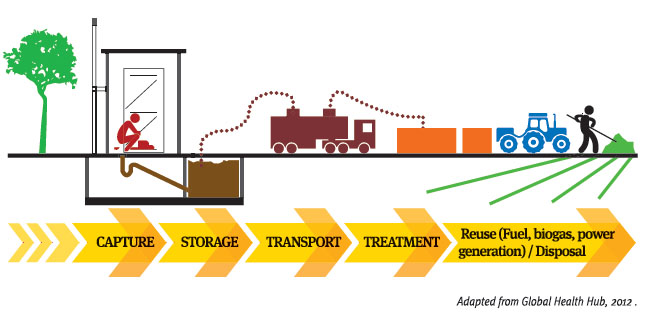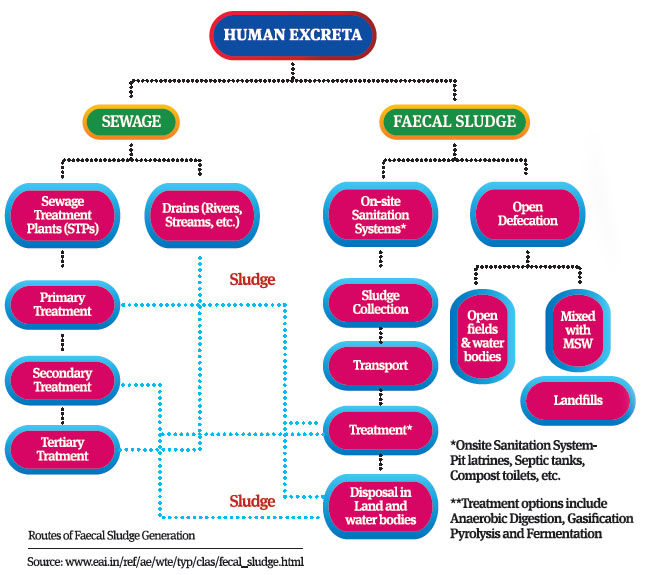Improvement in faecal sludge management for realising the goal of sustainable sanitation in Goa
Introduction
The State of Goa has made tremendous improvements on various economic and social development parameters, but the sanitation indicators have relatively lagged behind. With 76.08 per cent toilet coverage in the state, only 18 per cent of these toilets are connected to the underground sewer network, leaving a majority of the households in the state with the options of septic tanks and pit latrines. While the state is gearing up to achieve open defecation free status by the year 2017, the integration of all aspects of the sustainable sanitation service chain is of paramount importance. Thus, the emphasis should not just be on sanitation coverage, improving the access and use of latrines; but also on operation, maintenance and reuse or safe disposal of faecal sludge.
Improvement of Faecal Sludge Management (FSM)
One aspect that receives least attention under the sustainable sanitation service chain is the safe and final disposal of faecal sludge, or its reuse. WHO/UNICEF Joint Monitoring Programme for Water Supply and Sanitation (JMP) report highlights that almost 64 per cent of the population in selected sample cities around the world are on-site sanitation dependent, and therefore on faecal sludge management services. Only 26 per cent of the global population has access to sewered sanitation services. If the population dependent on on-site disposal of faecal sludge is accounted for, the total population lacking access to safe sanitation will be as high as 4 billion people globally. In India, less than 20 per cent of the population have connection to sewer systems, while in Goa, it is only 18 percent.

Access to sanitation and use of sanitation facilities is comparatively higher in the State of Goa; however treatment, reuse and safe disposal is of grave concern in the environmentally sensitive state with reports stating almost 90 per cent of the sewage being untreated. Water quality monitoring by the National Institute of Oceanography and the Goa State Pollution Control Board have established high level of bacterial contamination in the water bodies including the Mandovi and Zuari rivers and other canals and creeks. High levels of contamination of groundwater have also been reported in several areas including Calangute and even sea water on the state's coast has indications of contamination. The stringent implementation of Goa Public Health Act 2002 prohibiting indiscriminate disposal of faecal sludge on land, sea or any other water bodies has led to far-reaching progress of Faecal Sludge Management in the capital city, Panjim where the private service providers are responsible for successful management. User willingness to pay relatively higher user charges is one of the factors that have contributed towards a viable business model in the city. However, the other urban areas in Goa lack basic on site sanitation management and are in dire need of effective faecal sludge management. The sanitation sector must look for transformative changes and seek solutions that range from:
- Expansion of sewerage networks
- Up gradation/augmentation of existing STPs (Sewerage Treatment Plants)
- Introduction of independent faecal sludge treatment facilities and decentralised septage treatment plants
- Effective mechanisms for monitoring by Urban Local Bodies and stringent action against irresponsible actions
- Effective plans for reuse of treated sludge as fertiliser, soil conditioner, and the generation of bioenergy within the sanitation plans



